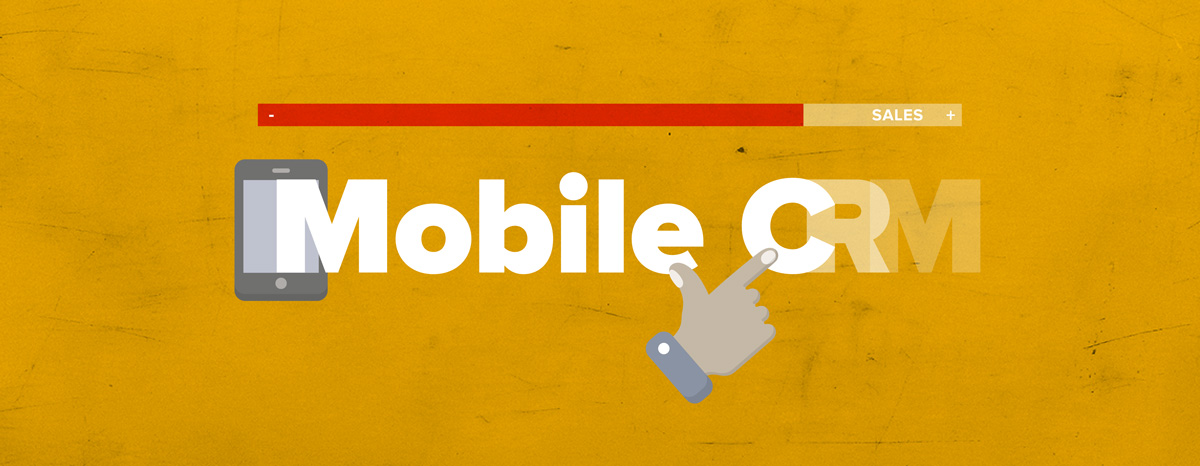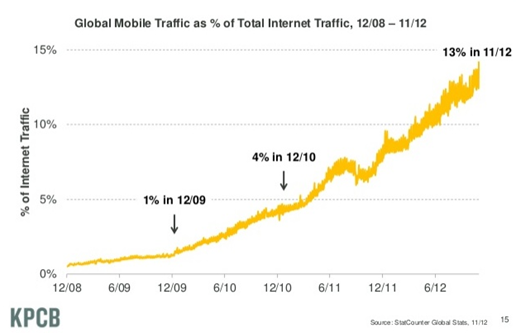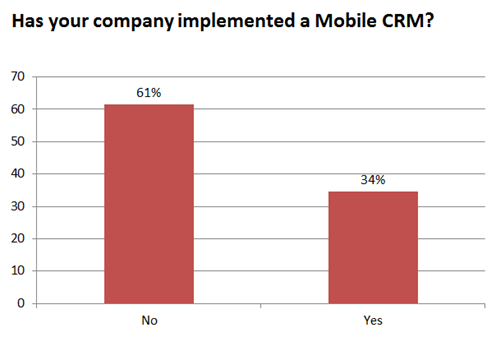Post summary:
- What is Mobile CRM?
- Mobile usage growth
- Mobile CRM adoption rates
- Getting started with Mobile CRM
Mobile usage is rapidly growing and sales teams around the globe are out in the field meeting potential customers. Because of this, both mobile devices and a mobile sales force have merged to become Mobile CRM.
In this post, I will look at the growth of mobile usage in recent years, why you should adopt a mobile CRM strategy in your business and how to get started with mobile CRM.
What is a Mobile CRM?
Mobile CRM, or Mobile Customer Relationship Management, is a CRM tool designed for mobile devices including smartphones and tablets.
By connecting through mobile CRM, you allow your sales team’s access to customer data through a mobile CRM app or through a web-based browser with cloud CRM. A key benefit of using mobile CRM is to allow your sales force to access real time data while out in the fields meeting prospects and customers.
Mobile usage growth
“By 2014, mobile internet usage should overtake desktop internet usage”. That was the key message taken from an Infographic posted by Microsoft Tag in March 2011. Traffic from mobile devices continues to grow and in fact, mobile traffic is growing so fast that in some places, such as India, it has already surpassed desktop traffic.
One of the key conclusions from the Internet trends report delivered by Mary Meeker is that 13 percent of all Internet traffic is now executed from a mobile device, an increase from 4% in 2011 and up from 1% in 2009.
As mobile adoption continues to grow and organizations become more flexible in work arrangements to their employees, traditional desktop applications such as CRM software are moving into the mobile space. Having a mobile strategy is no longer optional and is quickly becoming a necessity.
Mobile CRM adoption rates
Research by Forrester Research in 2008 found that 50% of Enterprises and more than 40% of SMBs were piloting, rolling out or currently using smart phone applications for sales force automation. And at the end of 2012, Forbes reported that there were 110 CRM applications in the Apple App Store and 47 in the Android App Store.
The Gartner Group predicts an exceptional growth rate of 500% by 2014 for mobile CRM. For comparison purposes, mobile usage increase between December 2010 and November 2012 was 225%.
Yet, with 50% rolling out or piloting a mobile CRM system, it leaves 50% without.
In fact, research in Europe found that less than 34% companies have implemented a mobile CRM.
Getting started with Mobile CRM
Before you begin to implement your mobile CRM, it is important that you define goals on what you want to achieve by having a mobile CRM and what your work force needs in order to take advantage of real time data access. I’ve outlined three highly important areas you will need to address before launching:
1. Internal buy-in
Before you implement a mobile CRM app, it is important that you get internal buy-in from the sales force. Your sales teams are the ones that will be using the smart phone application daily and in order to get their buy-in, you need to implement extensive in-house training on how to use the application in the form of user guides and training programs as well as explaining the key benefits of what they can achieve by working with the mobile CRM.
2. Provide the device
People love getting things for free and one of the easiest ways to get your sales team to adopt a smart phone CRM is to provide the device itself to your sales force and include the application pre-installed. Although most CRM mobile apps are supported by iOS, Android and Blackberry, make sure that you check with the provider before giving it to your sales force.
3. Mobile app usability
Your sales force will rarely need access to complete functionality on their CRM mobile app to all the same data and reporting they would access via their desktop. Start out by providing only basic access that the teams use on a day to day basis. For example, writing and sending an email, scheduling a meeting and/ or updating contact information.
The Definitive Guide to Mobile CRM
Other than increasing productivity and being essential to your CRM strategy, there are several more key benefits in adopting a Mobile CRM strategy. SuperOffice has recently launched a free-to-download mobile CRM guide.
How has your organization adopted a mobile CRM strategy?
Have you seen an increase in productivity since its inception?
Feel free to comment and share below.
P.S. If you're looking to get started in using a mobile CRM, then take a free 30 day trial by clicking the link below.







